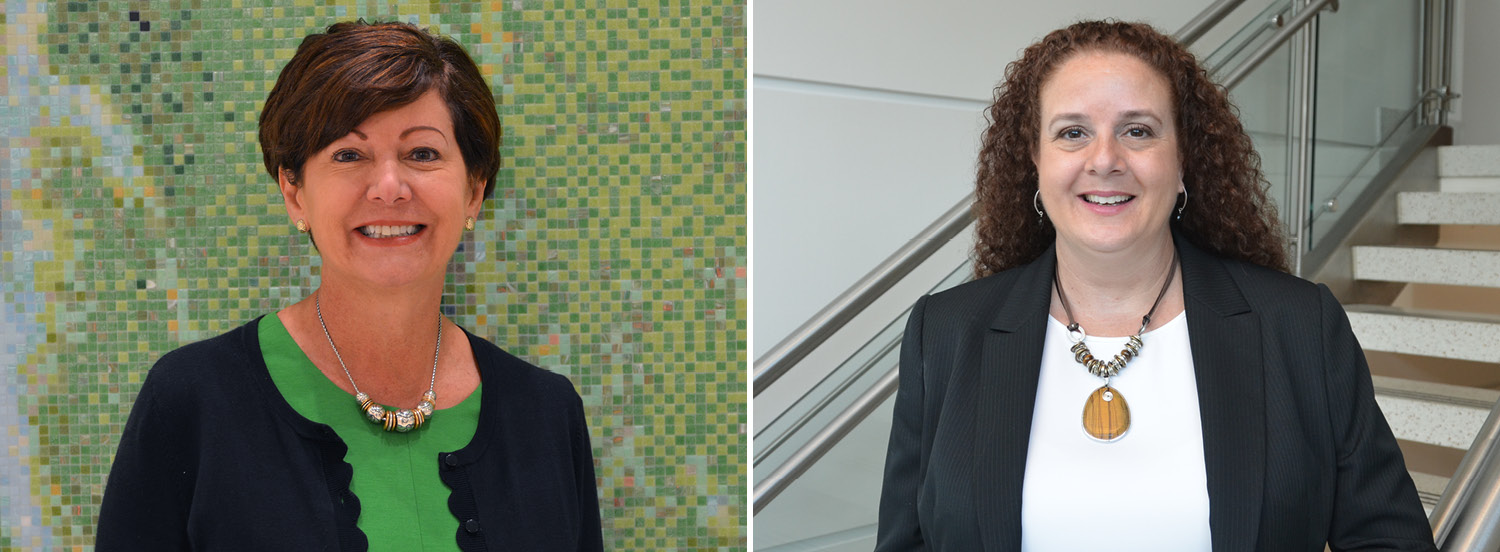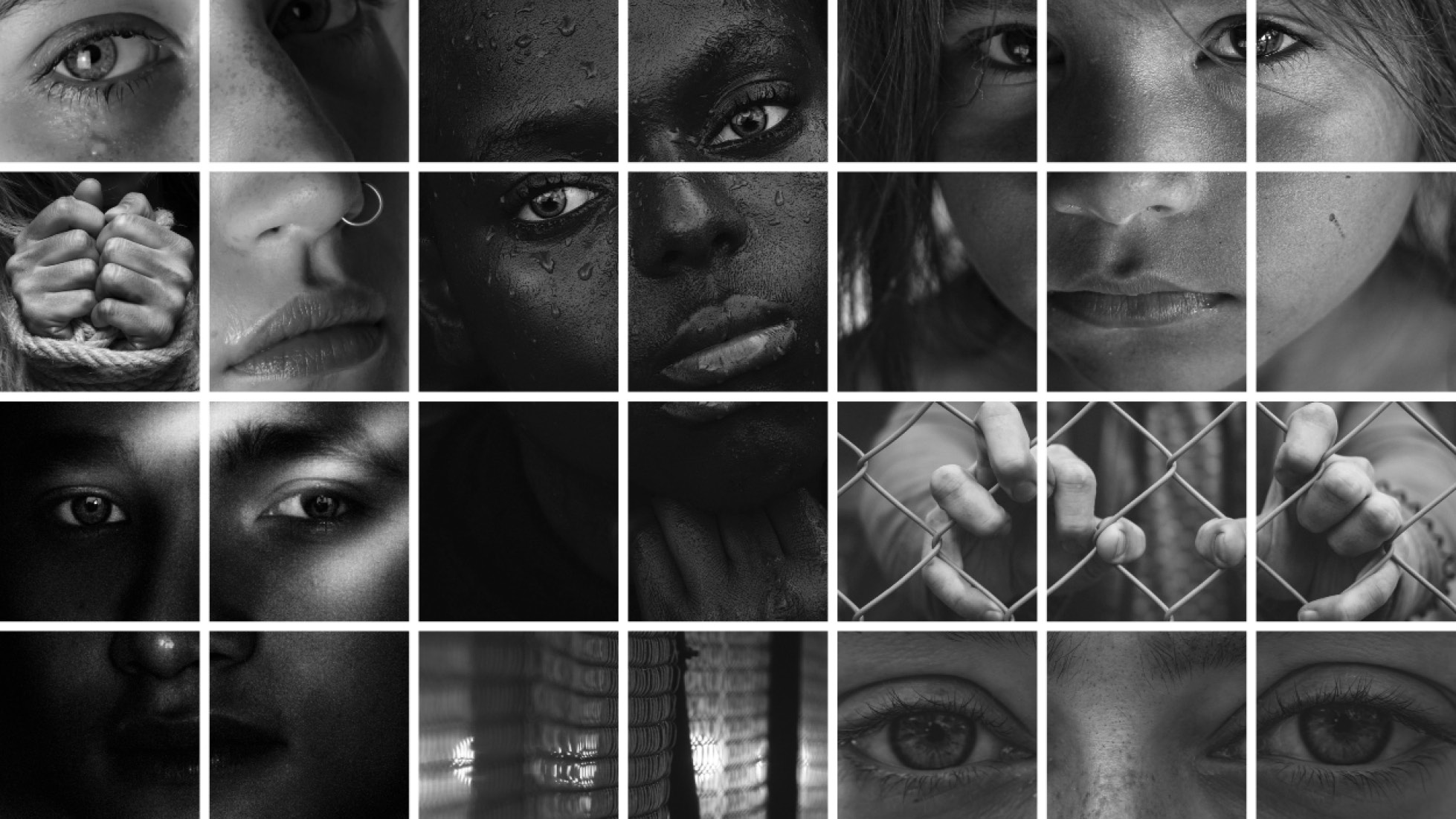At 14, “Melissa” was abducted and forced into sex trafficking. “I got angry with God,” she said on video, recalling her lowest point before a local nonprofit helped her escape. “I told [God], that’s it. I can’t survive this anymore. I was going to commit suicide…Most of the girls in there don’t think they could get out.”
Tens of millions of human trafficking victims, from young to elderly, exist among us, forced to stay silent and invisible—blend in, shut up, or disappear forever. In the U.S., Florida, California, and Texas are the top three states impacted, with South Florida at the epicenter of the crisis statewide.
“Despite this global epidemic, we are not educating our providers to recognize who they see in their practices,” said Dr. Deborah Salani. It is “very, very alarming,” she added, that 64 percent of trafficked individuals are seen by a health care provider while captive without being identified as such on examination—despite often-glaring “red flags” signaling the particularly brutal brand of long-term trauma and neglect they experience.
This was the stark subject of a Beta Tau educational presentation made by Dr. Salani and her colleague Dr. Beatriz Valdes, both associate professors of clinical at the School of Nursing and Health Studies (SONHS), during Human Trafficking Awareness Month in January.
The title of their lecture, “Do You See What I See? Recognizing Human Trafficking,” is also the name of the evidence-based educational curriculum—a powerful hybrid of simulation and classroom instruction—the two first piloted at the Simulation Hospital Advancing Research and Education (S.H.A.R.E.™) in 2019.
“If we could educate more health care providers about this topic, more lives would be saved,” said Dr. Salani.
Education is key in helping health care providers become more confident, knowledgeable, and adept at identifying and assisting patients who may be human trafficking victims, according to scholarly projects conducted by two recent SONHS doctoral nursing students (see page 16).
To that end, over 600 nursing students in a variety of degree programs at SONHS have completed the “Recognizing Human Trafficking” course since its official launch in Spring 2021. The simulation portion of the course requires students to engage unknowingly with a trauma-informed Standardized Patient (SP) portraying a potential trafficking victim.
Simulation educators Michelle Arrojo, D.N.P. ’18, and Amauri Quintana, D.N.P. ’20, run the scenarios that immerse students in complex encounters with varying indicators, challenges, and symptomatology.
“The overall response has been excellent,” said Dr. Arrojo. “The students appreciate having the professional patients. They say it makes it more real.”
Dr. Valdes agreed. “Some students are so into it that they walk out of the room to call 9-1-1,” she said. “They forget they are in a simulation.”
At least two alumni spoke up during the Q&A portion of the lecture to say that what they learned in the course helped them identify a human trafficking victim during a subsequent clinical encounter.
“The simulation and accompanying curriculum ensures that when our students are exposed to an event like this in the clinical arena, it won’t be their first time,” said Dr. Quintana. “Many say they now feel more comfortable in what to do if they suspect someone is being trafficked or exploited.”
Teaching providers to identify and responsibly assist human trafficking victims in culturally appropriate ways that don’t retraumatize or endanger them is part of a concerted mission under way at SONHS, led by Dean and Professor Cindy L. Munro, to make evidence-based tools and resources available to as many area health care professionals as possible.
Dean Munro has championed this curriculum from the beginning, making human trafficking awareness a pillar of the school’s goals for Ever Brighter: The Campaign for Our Next Century. Her support enabled Drs. Salani and Valdes to hire the 10 SPs they needed to enact emergency department patient scenarios addressing the sex, labor, and domestic servitude aspects of human trafficking.
“It’s not something you can read about,” said Dean Munro. “You have to practice it. Recognizing human trafficking should be a skill set just like the one we have when we see someone collapse. When that happens, we know how to perform CPR. We roll right into action.”
The Dean’s vision and blueprint includes establishing the Academic Center for Human Trafficking Education and Prevention at SONHS. The center will provide a permanent incubator from which faculty and students can continue developing, disseminating, and scaling up evidence-based curricula and research to national and international levels.
Critical support to date has come from The Harcourt M. and Virginia W. Sylvester Foundation, Maria G. Lamas, Heidi Schaeffer, M.D. ’98, and the UM Citizens Board, among others.
The generosity of the Harcourt M. and Virginia W. Sylvester Foundation, for example, will enable SONHS to significantly expand its efforts over the next two years to educate frontline health care professionals, collaborate with major hospital systems such as UHealth and Jackson Health System, engage a consultant, form an advisory board, and establish reproduceable resources for the local, national, and international community.
Lamas’s support helped create The Maria G. Lamas Featured Speaker Series for Human Trafficking Education and Prevention Endowment. Nurse practitioner Jessica Peck, a nationally recognized anti-human trafficking advocate and clinical professor at Baylor University in Texas, was the inaugural presenter for the series.
“Human trafficking is one of the most egregious human rights violations there is,” said Dr. Peck during her November address. “This is happening in your back yard, in my back yard, all the time, all around us.”
Emphasizing how shockingly commonplace the problem is, she said, “Sadly, it is easier to order a person than a pizza on the Internet.”
Even health providers are not immune from being victimized. Dr. Peck shared the story of a group of nurses from the Philippines lured to another country with promise of work then abused, stripped of immigration papers, threatened with harm to their families, and forced to work in a health system without anyone outside the trafficking ring aware of their predicament.
Statistics show that a majority of victims, in fact, are not getting help to escape trafficking when they visit the health care system. “These are difficult patients when they come in. They have learned how to survive,” she said. “Raising awareness but not equipping nurses is just creating moral distress. We need to make sure systems are in place to help nurses respond. Nurses are the greatest health profession poised for prevention—that's what we do,” she continued. “But we have to be organized as a profession.”
To help SONHS continue leading the way, Dr. Peck is sharing her expertise as a consultant and working with Dean Munro to assemble an advisory board. “The University of Miami has the ability to be an international leader in simulation-based learning,” Dr. Peck said. “What Dean Munro has proposed here with simulation is very innovative, immersive, and much more impactful for long-term behavioral change.”
Mentioning her tour of S.H.A.R.E.™ earlier in the day, Dr. Peck added, “My jaw is still on the floor. They can really provide this curriculum quickly and efficiently. I’m excited to see what’s going to happen going forward from here.”
Drs. Salani and Valdes are equally eager to build the momentum SONHS has going. “Our goal is really getting out there and educating more providers to pick up the signs to recognize these individuals in clinical practice,” said Dr. Salani. In addition to nurses, they have begun to educate public health students, social workers, and medical students, among others. They now offer virtual simulations, too. “We train as many people as we can,” she said. “We want that number of unidentified trafficking victims to go down.”
If you need help or suspect a case of human trafficking, call or share the Stop Human Trafficking hotline at 1-888-373-7888.

Addressing human trafficking as a public health crisis is not a new endeavor for SONHS.
2017—SONHS becomes a sub-awardee of an Office for Victims of Crime federal grant to evaluate all Miami-Dade County support services available to human trafficking survivors.
2018—Dr. Hanni Stoklosa, executive director of Health, Education, Advocacy Linkage (HEAL) Trafficking, facilitates an interactive workshop at S.H.A.R.E.™ to help health professionals recognize behaviors associated with human trafficking exploitation.
2019—Florida Board of Nursing mandates continuing education on human trafficking.
- SONHS faculty Deborah Salani and Beatriz Valdes pilot a simulation-based human trafficking awareness curriculum, based on best practices from organizations like HEAL Trafficking, earning a University of Miami Citizens Board Cane Crusader Award.
- Miami-Dade State Attorney Katherine Fernandez Rundle, whose Human Trafficking Unit has worked with more than 700 human trafficking victims and filed over 685 human trafficking-related cases since 2012, speaks at SONHS on the subject of human trafficking during the Super Bowl.
2020—SONHS hosts HEAL’s national Human Trafficking Awareness Summit, featuring JoNell Efantis Potter, M.S.N. ’87, Ph.D. ’03, head of UHealth’s Trafficking Healthcare Resources and Intra-disciplinary Victim Services and Education (THRIVE) Clinic, among others.
2021—SONHS welcomes Visiting Scholar Heidi Schaeffer, M.D. ’98, a human trafficking awareness and intervention expert, to present “Human Trafficking in the Health Care Setting” and dedicates The Dr. Heidi Schaeffer Academic Lab for Education & Training Against Human Trafficking at S.H.A.R.E.™
2022—Maria G. Lamas Featured Speaker Series for Human Trafficking Education and Prevention inaugural speaker, Dr. Jessica Peck, of Baylor University, presents “Nursing Response to Human Trafficking: Learn, Innovate, Transform.”

